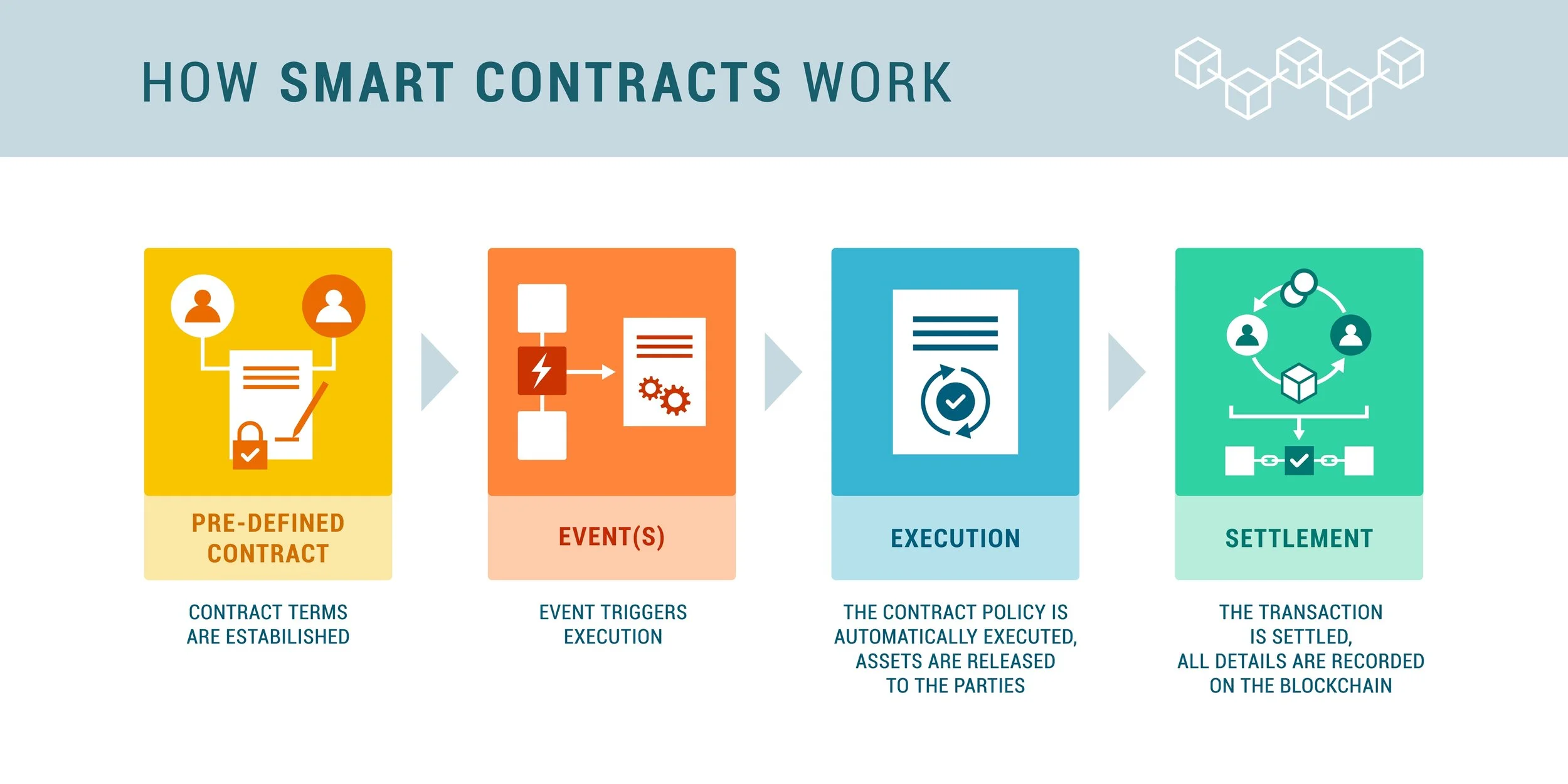The evolution of smart contracts - technology bringing change
Smart contracts have been a theoretical possibility since the 1990s, but it’s only recently that their practical application is gaining traction. We look at how smart contracts function, and how they can be used in business today.
What is a smart contract?
Smart contracts are digital contracts that are stored on a blockchain. They come in two parts (i) the coded part and (ii) the written part (often referred to as the ‘wrapper’ contract).
A smart contract functions differently to a ‘normal’ written commercial contract. Essentially the coded part of the contract translates written clauses into code.
A smart contract is ‘self-executing’, which means that it is executed automatically when predetermined terms and conditions are met. In other words, it is programmed to carry out a function, when a trigger happens. It follows the logical chain “if X, then do Y”.
Smart contracts are typically used to release funds to the right parties, send notifications, or issue tickets.
The evolution of smart contracts
Smart contracts were developed in the mid 90s, but wasn’t until the emergence of blockchain technology that they served a practical use and became a reality.
Now, the technology has moved on and smart contracts can handle more transactions quickly. They are more secure than ever before, now that new privacy tools and special codes have been introduced.
However, due to their logical sequence clauses (if X then do Y), they are limited to simple situations.
There is still a way to go with regulation, and it’s unclear how different countries will regulate smart contracts. Given that businesses and investors typically require certainty around regulation before they adopt new technology, it could take time for smart contracts to become commonplace.
Uses for smart contracts
So how are smart contracts actually used in practice? Here are a few examples to give you an idea, but it is by no means an exhaustive list.
Real estate
Smart contracts could be used to automate property sales, leasing, and the property management processes. For example, the final step of the conveyancing process could be automated by a smart contract, transferring ownership of the property on receipt of the deposit into a designated bank account.
Insurance
In the world of insurance, smart contracts could be used to carry out tasks automatically in response to an external trigger. The trigger may be receiving storm or flood data. The corresponding task may be to notify the broker and alert the claims handler to the next action to be taken.
Smart contracts can also be used to give automatic payouts in certain conditions. This makes the industry more efficient and streamlined. Smart contracts wouldn’t be suitable for complex, high value claims with complicated facts and nuance. But for straightforward claims, the automatic payouts could save time and money.
Airlines
Most people have experienced the frustration of a long delay to their flight, and the effort it takes to claim compensation. In the aviation industry, smart contracts could be used to pay out compensation automatically when delays above a certain threshold happen.
Arbitrations
For some arbitrations, smart contracts can be used to perform some of the simple functions, such as appointing an arbitrator. In straightforward arbitrations, they can be used to payout the arbitral award.
Supply chains
Smart contracts could work wonders for supply chains, by automatically ordering, or moving products, on the completion of a trigger. For example: “When orange juice cartons reach 5 boxes, order 30 more boxes.”
Conclusion
Smart contracts still feel quite new and unusual. But they have evolved significantly in the last 30 years and with the explosion in AI technology, the technology is there to capture their practical uses. Smart contracts can make business more efficient and streamlined. But we are still waiting to see how they will be regulated and controlled.
If you’d like any more information on Blockchain, Smart Contracts, Crypto Seizure , or generally, please give us a call at Harewood Law. We are based in Leeds, and cover Bradford, Halifax, Wakefield, Huddersfield, Keighley and across West Yorkshire and the UK.
Harewood Law regularly instruct leading experts in this area and we can assist, guide and advise on the type of expert that is most relevant in your particular circumstance. Please contact our team today on 0333 3448377 or email us on info@harewoodlaw.com and we will be more than happy to assist.



